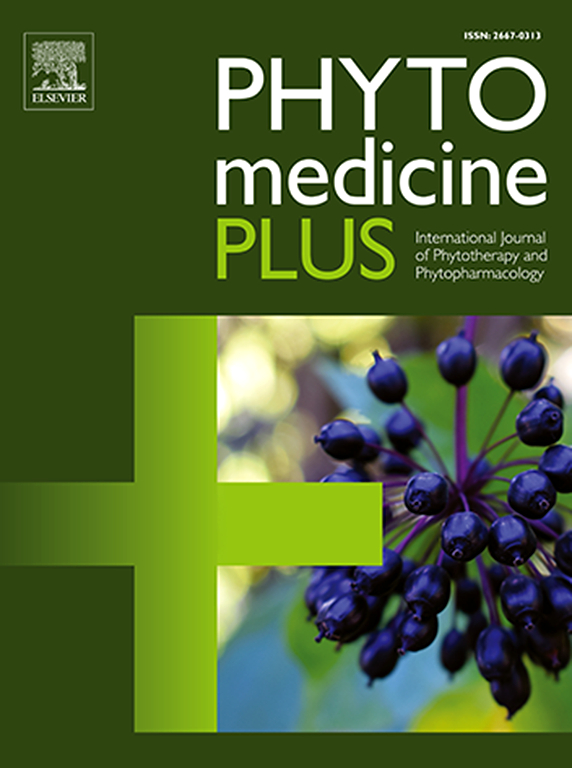药用植物代谢物调节电压门控钠通道活性:系统综述
Q3 Pharmacology, Toxicology and Pharmaceutics
引用次数: 0
摘要
背景电压门控钠通道(Nav)在神经元和肌肉组织中产生动作电位至关重要。这些通道的功能障碍与神经系统疾病如癫痫、神经性疼痛和肌病有关。虽然植物来源的化合物在调节Nav通道方面表现出了希望,但分子机制仍未得到充分的了解。本系统综述旨在确定影响Nav通道活性的植物代谢物,以开发更具选择性和更安全的治疗方法。方法按照PRISMA 2020指南进行综述。在PubMed、Scopus、Web of Science三个数据库中使用与钠通道和药用植物相关的关键词进行检索。研究根据预先确定的资格标准进行选择,并由两名审稿人通过标准的关键评估过程进行评估。结果共纳入6项研究,研究植物代谢物对Nav通道的影响。在细胞模型中,延胡索、山楂、蛇thol和大麻二酚中的异喹啉类生物碱抑制Na+电流,主要影响Nav1.7和Nav1.5。这些化合物具有镇痛、抗心律失常和神经保护特性,表明它们对与Nav通道功能障碍相关的疾病具有治疗潜力。结论调节Nav通道的植物源代谢物在治疗神经系统疾病方面具有显著的治疗潜力,提供更有针对性的治疗,副作用更小。然而,需要进一步的研究来阐明潜在的分子机制,并通过临床前和临床试验验证这些化合物。本文章由计算机程序翻译,如有差异,请以英文原文为准。

Metabolites derived from medicinal plants modulating voltage-gated sodium channel activity: A systematic review
Background
Voltage-gated sodium channels (Nav) are critical for generating action potentials in neuronal and muscle tissues. Dysfunction of these channels is associated with neurological disorders such as epilepsy, neuropathic pain, and myopathies. Although plant-derived compounds have shown promise in modulating Nav channels, the molecular mechanisms remain insufficiently understood. This systematic review aims to identify plant metabolites that affect Nav channel activity, with the potential for developing more selective and safer treatments.
Methods
The review followed PRISMA 2020 guidelines. A search was conducted in three databases (PubMed, Scopus, Web of Science) using keywords related to sodium channels and medicinal plants. Studies were selected based on predefined eligibility criteria and evaluated through a standard critical appraisal process by two reviewers.
Results
Six studies were included, examining the effects of plant metabolites on Nav channels. Isoquinoline alkaloids from Corydalis yanhusuo, hangeshashinto, osthol, and cannabidiol inhibited Na+ currents in cell models, primarily affecting Nav1.7 and Nav1.5. These compounds exhibited analgesic, antiarrhythmic, and neuroprotective properties, suggesting their therapeutic potential for disorders linked to Nav channel dysfunction.
Conclusions
Plant-derived metabolites that modulate Nav channels present significant therapeutic potential for treating neurological disorders, offering more targeted treatments with fewer side effects. However, further research is needed to clarify the underlying molecular mechanisms and validate these compounds through preclinical and clinical trials.
求助全文
通过发布文献求助,成功后即可免费获取论文全文。
去求助
来源期刊

Phytomedicine Plus
Medicine-Complementary and Alternative Medicine
CiteScore
3.70
自引率
0.00%
发文量
178
审稿时长
81 days
期刊介绍:
 求助内容:
求助内容: 应助结果提醒方式:
应助结果提醒方式:


